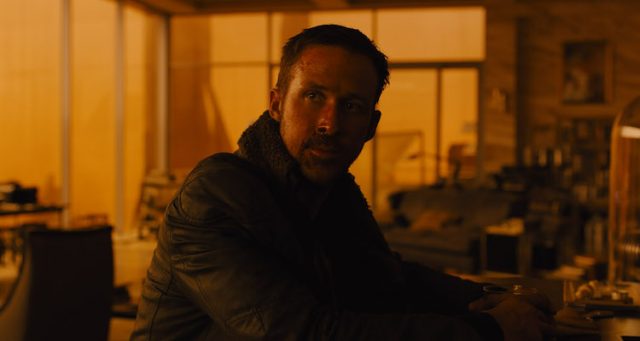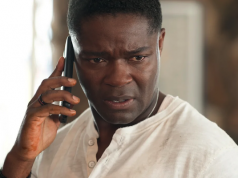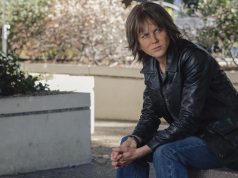
Having missed it as a child and then being unsure which version I was supposed to watch, I never saw Ridley Scott’s “Blade Runner” until the “final cut” was released in 2007. And I saw that one twice, because the first time didn’t take. I failed to love it, and I thought it might be my fault. Many things are.
But no, it turns out “Blade Runner” is a respectable movie with much to admire that I simply don’t care for. Though beautiful to look at, it’s cold and sterile. I respect it, but I don’t particularly enjoy it. (I feel the same way about a lot of people.)
So no hard feelings if you need your “Blade Runner 2049” opinions to come from a “Blade Runner” enthusiast and you have to stop reading now. For the rest of you, I can report that the melancholy sequel, produced by Scott and directed by Denis Villeneuve (“Arrival,” “Sicario”), is likewise visually gorgeous, likewise admirable in many ways, and likewise doesn’t do much for me, only now it takes 45 minutes longer to not do it.
The action is set 30 years after the events of the first film, with replicants (bioengineered humans) still comprising a major portion of the workforce in the dim, ashy dystopia that America has become. A blind technocrat named Wallace (Jared Leto) bought what was left of the company that used to make replicants, found a way to make them more obedient, and gave them fixed lifespans. But there are still some of the old models running around, the ones that aren’t as pliable and can theoretically live forever. It is the duty of the “blade runners” (cops) to find these and “retire” (kill) them.
Our chief blade runner, an LAPD officer played by Ryan Gosling, is nicknamed K because his real name is a serial number because he is a replicant. The movie tells us this up front, perhaps so we wouldn’t get hung up on the possibility like people did with Deckard in the original. K knows what he is, knows his childhood memories are just part of his programming, and is (mostly) content to spend his evenings at home with his hologram wife, Joi (Ana de Armas), who’s very loving, though she pauses when he gets a phone call.
Intrigue arises when K finds a 28-year-old box of replicant bones and the doctors determine that the replicant they belonged to died while giving birth. If replicants can reproduce, well, that’s new. K’s boss, Lt. Joshi (Robin Wright), orders him to track down the replicant child, if it is still alive, and kill it. “I’ve never retired something that was born before,” K muses.
It’s a procedural, then, much like the first film was. (Screenwriter Hampton Fancher has returned, sharing screenplay credit with “Logan‘s” Michael Green.) K’s investigation takes him to Wallace’s headquarters, where he learns that a blade runner named Deckard (Harrison Ford, who appears in this movie) had a forbidden relationship with the same female replicant who evidently went on to give birth, and where he does not learn (but we do) that Wallace wants to increase production of replicants so he can use them as slaves on Earth’s colony planets. K also meets a scientist (Carla Juri) who designs the fake memories that are implanted in replicants, who tells him that all memories have a hint of their creator in them.
If any film could get by solely on its breathtaking cinematography, it would be this one. The legendary Roger Deakins (who’s been Oscar-nominated 13 times in 22 years without ever winning) photographs the forlorn and dismal future with spectacular depth and clarity, giving it more life, I suspect, than the real 2049 will have. The original film’s “ruined future” aesthetic is expanded upon, enhanced by CGI, and it effectively complements the ponderous tone of the story. Villeneuve, one of our moodiest auteurs, was surely a good choice to direct, and he takes the job seriously. Though there are references to the other film, there’s no winking fan service or conspicuously wedged-in callbacks.
But movies, like replicants, need fixed lifespans. If you let them go on forever, they’re bound to cause trouble. As worthy as this film’s plot is on paper, it becomes stagnant when poured into a film lasting 163 dreamy, ethereal minutes. Methodical and sad, it’s a film with plenty of mood but little emotion, well made but frigid. Maybe you can love it, but I replican’t.
C+ (2 hrs., 43 min.; )





